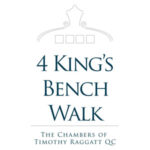Continue reading "Remedies: One small step"
Remedies: One small step

Gwendoline Davies explores Supreme Court case law on contractual damages ‘It is necessary for the court to consider post-breach events known at the assessment of damages if they are relevant to and affect the claimant’s loss.’ Commercial parties are generally aware that a breach of contract gives rise, in the majority of cases, to a …







